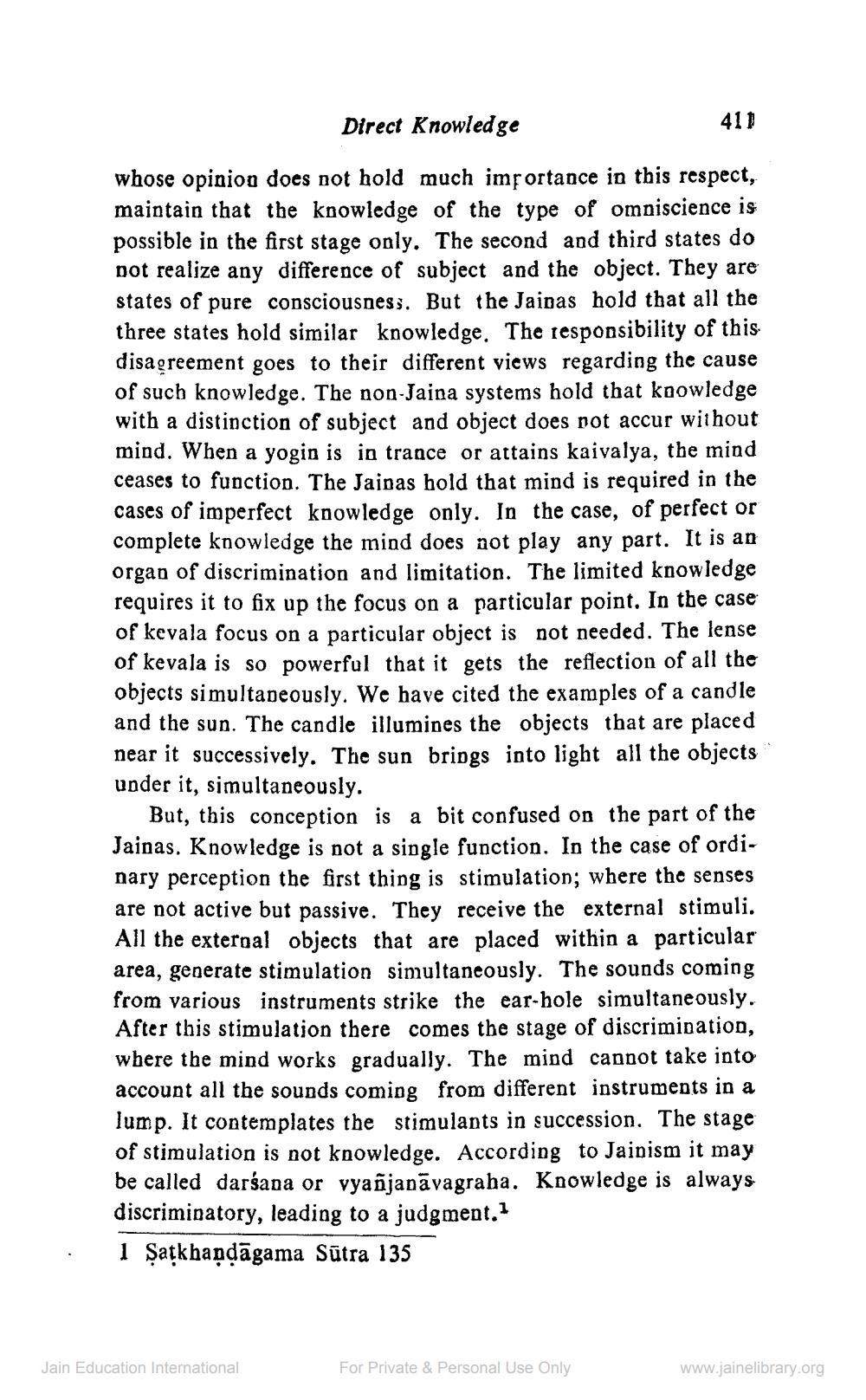________________
Direct Knowledge
411
whose opinion does not hold much importance in this respect, maintain that the knowledge of the type of omniscience is possible in the first stage only. The second and third states do not realize any difference of subject and the object. They are states of pure consciousness. But the Jaipas hold that all the three states hold similar knowledge. The responsibility of this disagreement goes to their different views regarding the cause of such knowledge. The non-Jaina systems hold that knowledge with a distinction of subject and object does not accur without mind. When a yogin is in trance or attains kaivalya, the mind ceases to function. The Jainas hold that mind is required in the cases of imperfect knowledge only. In the case, of perfect or complete knowledge the mind does not play any part. It is an organ of discrimination and limitation. The limited knowledge requires it to fix up the focus on a particular point. In the case of kevala focus on a particular object is not needed. The lense of kevala is so powerful that it gets the reflection of all the objects simultaneously. We have cited the examples of a candle and the sun. The candle illumines the objects that are placed near it successively. The sun brings into light all the objects under it, simultaneously.
But, this conception is a bit confused on the part of the Jainas. Knowledge is not a single function. In the case of ordinary perception the first thing is stimulation; where the senses are not active but passive. They receive the external stimuli. All the external objects that are placed within a particular area, generate stimulation simultaneously. The sounds coming from various instruments strike the ear-hole simultaneously. After this stimulation there comes the stage of discrimination, where the mind works gradually. The mind cannot take into account all the sounds coming from different instruments in a lump. It contemplates the stimulants in succession. The stage of stimulation is not knowledge. According to Jainism it may be called darśana or vyañjapāvagraha. Knowledge is always discriminatory, leading to a judgment." 1 Şațkhaņdāgama Sūtra 135
Jain Education International
For Private & Personal Use Only
www.jainelibrary.org




